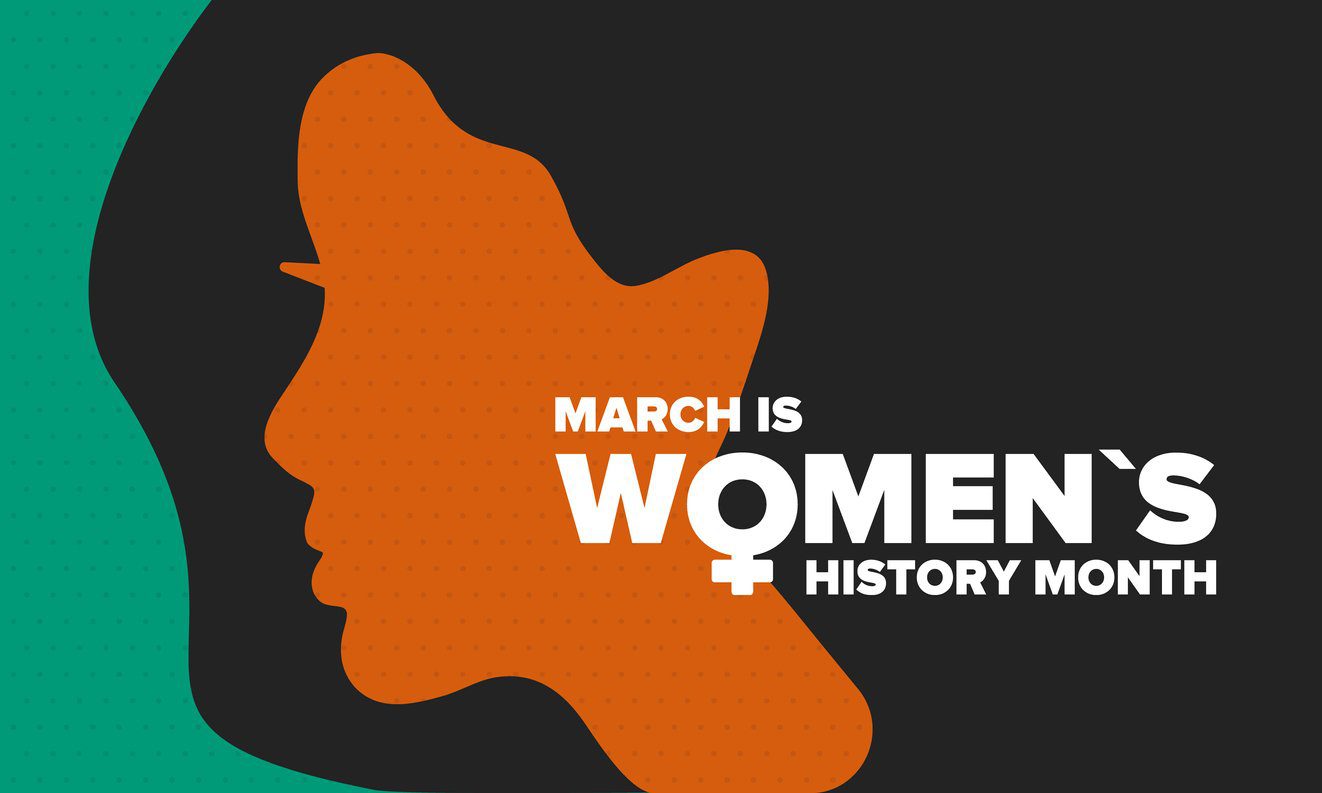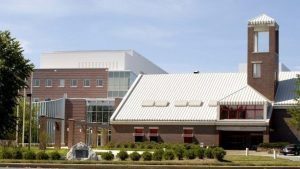
Black Women In Bio Making an Impact
Its Women’s History Month and being on the heels of Black History Month, BioBuzz is highlighting three successful black women in industry to unify the importance of both.
Read on to learn their “why”, what opportunities they’ve taken advantage of that you can too, and what efforts are in place as well as what can be done to continue supporting efforts for women of color to find success in STEM careers.

Sommar Nettles, MS, ASQ-CQA, CPGP, CMQ/OE
Director of Quality Assurance,
American Gene Technologies
What drew you to science growing up? Please share specific aspects (people, programs, organizations, etc.) that helped your interest evolve and shape your career.
I’ve always been a curious kid who required answers and proof of everything. I was always told I asked too many questions and had an “attitude” because I didn’t just accept anything anyone told me. I always felt the need to both understand and ask “why?”.
It wasn’t until my mom was diagnosed with Triple Negative Breast Cancer that I really got into the sciences. I went with her to Chemo to keep her company. She also participated in Clinical Trials. My mother was my best friend. I wanted to understand her treatments, her disease, and her medications. I wanted to help her. I loved that everything in science just clicked together and made sense. She always encouraged me to do my best, and after her death, I learned that my mother never finished High School. I made it a goal to get as much education as I could.
After my mother died, I became close to my Biology teacher, Mrs. Link, who also taught a Biotechnology course provided/funded by Virginia Tech. My first Biotech experiment was cloning an African violet. I will never forget how excited I was to do this experiment, it wasn’t the same as dissecting a frog or a worm, it was an experiment that really tested your laboratory skills and aseptic technique. Mrs. Link encouraged me to apply to Virginia Tech and wrote my letter of recommendation, she knew that my mother had passed and I didn’t have the best living arrangements, so she took a special interest in me and I am so grateful for her kindness. Thank you, Mrs. Link.
We’re curious to know how the path stayed the same as you anticipated or changed during college and the early years of your professional career from what you imagined and what it is today?
I always knew I wanted to study and work in Biotech, but at the time there was no Biotech major. There was Biology, Chemistry, Biochemistry, but not Biotech. I decided to Major in Biology and it was a HUGE program at VT. I was often the only black person in my class out of hundreds of people. I felt like a number and I struggled a lot because I did not have money to buy books or a computer my freshman year. I hand wrote all my papers and borrowed books from friends. I felt like I was taking a bunch of Biology courses that gave me a lot of knowledge, but I couldn’t figure out what I wanted to do with it all.
I took an Intro to Food Science course and decided it was a more realistic major for me. I loved that the program was very small and prepared us to work in industry. They also helped us with our resumes and helped us find jobs. I changed my major to Food Science and decided I wanted to work in Quality as a Microbiologist, and I did.
I worked in the food industry for 2 years in Quality Control Microbiology, but it was not a good fit for me. I wanted to be more than a lab tech, I had such big hopes and dreams for myself that I didn’t see how I could achieve them in the food industry. I wanted to have my name on something and I wanted to leave my mark. So I switched to Biotech and it was such an easy transition because a lot of the assays are exactly the same. I had such good technique that I was invited to learn cell culture and excelled at that as well. Although my path was not straight forward my goal stayed the same, I made a plan for myself and got there. I am exactly where I thought I would be.
What do you find to be most challenging (overall and as a woman of color) in the past and what continues to be a focus for you as you grow?
What I find the most challenging in my career is prejudice. People assume I am not smart or I don’t understand anything about science because I am Black and a Woman. I have been in situations where I have been tasked to do the simplest and most boring lab duties like cleaning out freezers and alphabetizing reagents because people assume I am incompetent. I’ve also been mistaken for an office admin or secretary and asked to fetch coffee. I have had people take credit for my work. I have had people assume that I am angry and unfriendly because I am not a big talker and I am introverted.
People see me and assume that because I like my nails long and colorful, and I listen instead of talk, that I can’t possibly know, understand, or be capable of anything. It’s quite hurtful, to be honest.
The new challenge that I face these days is imposter syndrome. You hear that you can’t or shouldn’t for so long you begin to doubt your own abilities and question if you really belong where you are or are you just a quota, do you really deserve this? My focus is to inspire more black women to pursue careers in STEM and to understand that there are so many things you can do with that knowledge.
What are you most excited about having contributed to professionally?
I am most excited about the Quality Assurance work I have done in Cell and Gene Therapy. I see myself as a bit of a Pioneer. I had no idea how rare it is to find someone who is knowledgeable of both Regulatory compliance AND Cell therapy. I have built and implemented Quality Systems at American Gene Technologies International Inc and the National Cancer Institute. Cell and Gene therapy is so exciting for me because there are so many possibilities and uses for the technology.
It is amazing what we can do to treat so many diseases using our own cells… or someone else’s. Because this is still regarded as a “newer” technology the regulations have not quite caught up to the work being done. I really enjoy interpreting the regulations and being challenged with “How can we meet this.” It’s like a puzzle for me, I feel accomplished and proud when I see the fruits of my efforts.
One of my proudest moments is when American Gene Technologies International Inc HIV Cure IND was approved by the FDA. The feeling of seeing all your hard work pay-off is indescribable.
Please feel free to share any other aspect of your experience that you feel would empower and inspire?
- I am from East Side Long Beach California
- I am a first-generation high school, college, and graduate school, graduate
- I lost my mother to Breast Cancer when I was 15 years old
- I went to Virginia Tech undergrad and paid for it myself working in a dining hall
- I went to the University of Maryland Global Campus for graduate school
- I am BRCA1 positive and a Breast Cancer Survivor who underwent a double mastectomy

KaShauna G. Rohlehr, MBA, PMP
Associate Director – Alliance, Program and Project Management, GlaxoSmithKline (GSK) Rockville Biopharm
You’ve worked in industry for some time now and for two global companies, almost the past decade of which at GSK. Over that time, what changes have you seen occur and what still needs to be done to continue to provide opportunities for minorities within life sciences?
Over the years, there has been an increase in dialogue and transparency around the disparity of minorities, including ethnicity and gender, in life sciences/STEM disciplines. Companies are demonstrating more appreciation for diversity, and an understanding of the value a diverse workforce brings with differing knowledge, abilities, perspectives, experiences, and backgrounds.
The demand for diverse, qualified life science professionals is high, but the supply remains low. Underrepresented groups are not largely engaged in these fields. This can be attributed to many factors, but the lack of awareness and access to quality STEM education among minorities are large drivers.
Many companies have built collaborations and partnerships with colleges and universities, especially Historically Black Colleges and Universities (HBCUs), to build a pipeline and produce well-qualified candidates to meet today’s hiring demands for more diverse STEM talent. Companies provide scholarships and grants to help with diversity initiatives and provide minorities with the opportunity to pursue STEM degrees.
However, it is known that a percentage of minority college students transfer out of STEM majors before earning a degree. In response, companies have started engaging more actively in supporting summer preparatory programs for diverse student to increase retention and graduations rates as well as prepare them for the rigors of STEM majors, participating on college advisory boards to build curriculum that will prepare diverse college students for industry, and offering internship/co-op opportunities to enhance their academia experience.
Additionally, companies have built collaborations and partnerships with groups aimed at increasing minorities in life sciences/STEM disciplines. There has been an increase in targeted recruiting to provide more opportunities for minorities and to make candidate pools more heterogeneous.
Over the years, more and more companies sponsor and participate in conferences and workshops to increase their presence and recognition with membership of professional organizations such the National Society of Black Engineers (NSBE), Women of Color in Pharma (WOCIP), Society of Women Engineers (SWE) and Society of Hispanic Professional Engineers (SHPE) just to name a few.
In general, companies are becoming more accepting of diverse employees being themselves and not assimilating to a certain mold, essentially embracing diversity. Most companies have employee resource groups that provide an internal network and support system for diverse employees with similar backgrounds. This has facilitated retention and provided a vehicle for senior leaders to engage with underrepresented populations to build trust, enhance awareness and provide educational and professional development.
Despite the progression forward in many areas, there is still much to be done. First and foremost, companies can do a better job at fostering interest in the sciences among minority students as early as elementary, middle, and high school. Government and private sector can aid in improving the accessibility of STEM education within populations of underrepresented groups. Companies can start planting STEM seeds early and building a pipeline by partnering with schools for science fairs, facility tours, career fairs, and more.
Also, companies can provide and invest in more apprenticeships. This is an excellent way to bring in minority high school graduates, train them in the industry and provide them with a college education. Lastly, companies can work to ensure policies and processes promote equal opportunity and eliminate chances for unconscious bias specifically in the recruitment and selection processes.
Provide any thoughts you have that you think would create value for minorities looking to enter a biotech/life science career. Specifically, from the perspective of things that have served you well as a woman too!
Knowledge and awareness of the types of career opportunities available in biotech/life science, and the skill sets they require, is key. Minorities seeking to enter into a career in biotech/life science should join and become active with a professional organization that they identify with such as Women in BIO, Women of Color in Pharma (WOCIP), or any of the engineering societies (NSBE, SWE, SHPE, etc.).
This is a great way to build a network, share ideas, learn best practices and obtain professional development. Additionally, longevity in the industry often equates to seniority and advancement; thus, they should establish a mentorship with someone in a senior role to provide guidance and answer questions. They should seek to participate in leadership development programs within their company or in conjunction with a professional organization to hone their skills.
Lastly, once a position is obtained, they should seek a sponsorship within their company to have a person at the senior/executive level advocating for them.
GSK recently launched a STEM Equity Collective in Philadelphia. This is a significant commitment over the next 10 years to support STEM careers for black and Latinx women. Can you speak to the overall efforts of the initiative? And what will be a successful milestone of the endeavor?
As a company that improves the lives of hundreds of millions of people globally with our medicines, vaccines, and consumer products, GSK has an opportunity and obligation to do more to improve inclusion and diversity. GSK’s approach to philanthropy centers on addressing structural inequity in the communities where we live and work.
In August 2020, GSK announced its commitment of $10 million over 10 years to help Black, Latinx, and female students in Philadelphia, PA overcome obstacles to their pursuit of careers in science, technology, engineering, and mathematics. GSK, in partnership with Philadelphia Education Fund’s Philadelphia STEM Ecosystem, have brought together 70+ organizations from across Philadelphia (schools, out-of-school time providers, universities and colleges, employers, local government and the philanthropic community) to form the Philadelphia STEM Equity Collective, a collaborative effort to increase the number of women and Black and Latinx Philadelphia students entering STEM careers by 2030.
The goal is to identify and close gaps confronting children from backgrounds underrepresented in STEM. The Collective has developed a set of short- and long-term outcomes to increase equity in the community, K-12 and post-secondary education, and the workplace. GSK will support at least $1 million in grant funds each year for 10 years for in-school programming and nonprofit organizations/community efforts working to address inequity in STEM education and career pathways.
In addition to the financial contribution, GSK has committed the energy and expertise of skills-based employee volunteers to support this collaboration. The Philadelphia STEM Equity Collective builds on GSK’s more than 30-year history supporting STEM education in communities across the US, through our free GSK Science in the Summer TM program that brings hands-on science education to 25,000 each summer.

Annica Wayman, Ph.D.
Associate Dean for Shady Grove Affairs in CNMS, UMBC
As Associate Dean for Shady Grove Affairs, what are your priorities to ensure the success of women in science?
To ensure the success of women in science, I start with simply believing that every student of any background can succeed and supporting them as much as possible.
In my former job at USAID, we would often say that talent is everywhere but opportunity is not.
I fully believe this and approach my work at UMBC-Shady Grove with this in mind. I try to provide educational opportunities, encouragement, and support to all students. My hope is that students are then prepared and given significant opportunities in the biotechnology industry where having diverse talent is important.
I also aim to have a diverse faculty group so that all students can see themselves reflected in the professors who teach them and feel like they belong in the sciences. In addition to a diverse faculty group, I’m proud that the two directors of our undergraduate and graduate applied biotechnology degree programs are both amazing women.
And what are you most proud of having contributed to so far in your career?
A recent contribution of which I’m proud of is launching and growing the new Translational Life Science Technology (TLST) Bachelor of Science degree program at UMBC-Shady Grove. The program provides an innovative curriculum in biotechnology that’s interdisciplinary and includes applied hands-on learning. With this program, I’m filling a critical workforce gap in an industry that makes a great impact in healthcare. And I’m filling that gap with a diverse workforce because the majority of TLST students identify as female and a large number of students are from racial or ethnic groups typically underrepresented in the sciences.
I’m also proud of our professional Master’s degree in biotechnology that is also at UMBC-Shady Grove and the diversity of students in that program. It’s important that the biotechnology workforce is diverse at all levels. Our master’s program is advancing the knowledge of those already working in industry in areas of business, regulatory science, management, communications, and science topics related to biotechnology so that they become the new and diverse biotechnology leaders.
Thank you to the ladies for sharing their stories and for their impactful work.
- About the Author
- Latest Posts
Adam helps biotech + lifescience companies share their “WHY” to create powerful talent magnets. Some of Adam’s highlights include creating award-winning marketing and brand awareness campaigns, building strategic partnerships with major global brands, and planning some of the country’s largest events. A father to two boys, Adam and his wife Emily enjoy spending time as a family in the great outdoors with a goal of visiting every National Park in the country. +Δ | #InItToDoGood





